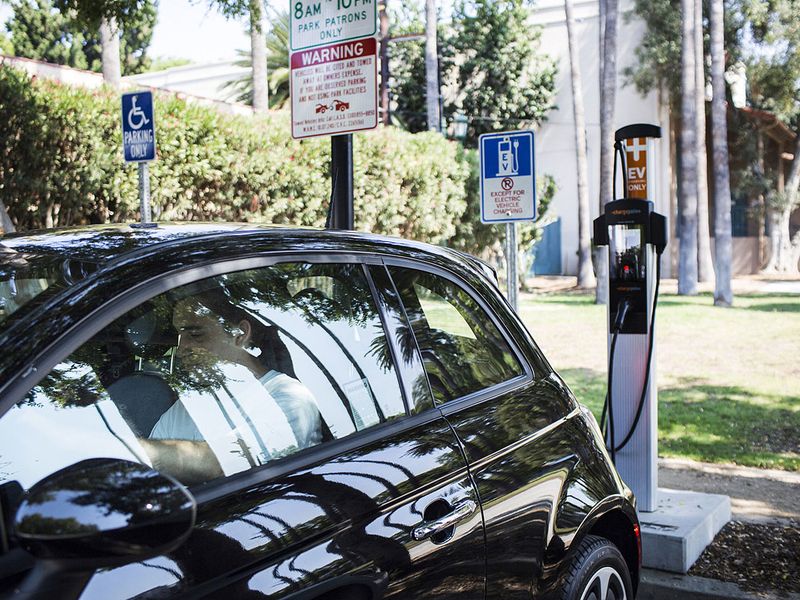
WASHINGTON — The Alliance for Automotive Innovation on Thursday unveiled 10 recommendations for public charging stations as the U.S. begins to plan for a nationwide infrastructure for electric vehicles.
The recommendations come after President Joe Biden last month signed into law a roughly $1 trillion infrastructure bill. The bipartisan legislation includes $7.5 billion for EV charging stations and $65 billion for upgrades to the nation’s electric grid.
The funding for EV infrastructure is an “important down payment to jump-start the public and private investment in a nationwide charging network,” the alliance said in a document outlining the charging station attributes. The recommendations are designed to help federal- and state-level investment planning and funding considerations for EV charging across the U.S.
“Achieving ambitious EV sales goals will require effective collaboration and planning across various industries and sectors,” John Bozzella, alliance CEO, said in a statement. “It will be critical to ensure charging infrastructure is widely available and benefits all communities, and that consumers understand how and where to charge an EV.”
The trade association represents most automakers in the U.S as well as some suppliers and tech companies. It does not represent Tesla Inc.
For infrastructure that is federally or state-funded, the alliance is recommending the U.S. departments of Transportation and Energy, as well as states, consider:
- DC fast chargers that are capable of charging at a rate of 350 kilowatts — the fastest charging speed available for light-duty vehicles today that the alliance says will “help future-proof for new vehicle and charging technologies.”
- Chargers that do not limit use to a single automaker or proprietary technology, such as Tesla’s Supercharger network.
- Chargers that accept credit cards as well as other payment methods.
- A minimum reliability standard to prevent nonoperational chargers for extended periods of time.
- Charging stations open 24/7.
- Stations with multiple port sites and that support a variety of vehicle designs and charging situations.
- Network and communication requirements that allow drivers to know whether a station is operational and if their vehicle can be charged at the site.
Other considerations include EV charging signage for highway service signs and a standard way to communicate how much it costs to charge the vehicle, such as dollars per kilowatt-hour.
In September, the alliance released principles on EV charging infrastructure that the trade association says are necessary to advance consumer acceptance and adoption of electric vehicles in the U.S.
The principles, which complement the charging station recommendations, focus on keys areas to support widespread EV charging infrastructure, including public and utility investments to scale up access to chargers and hydrogen fueling stations.